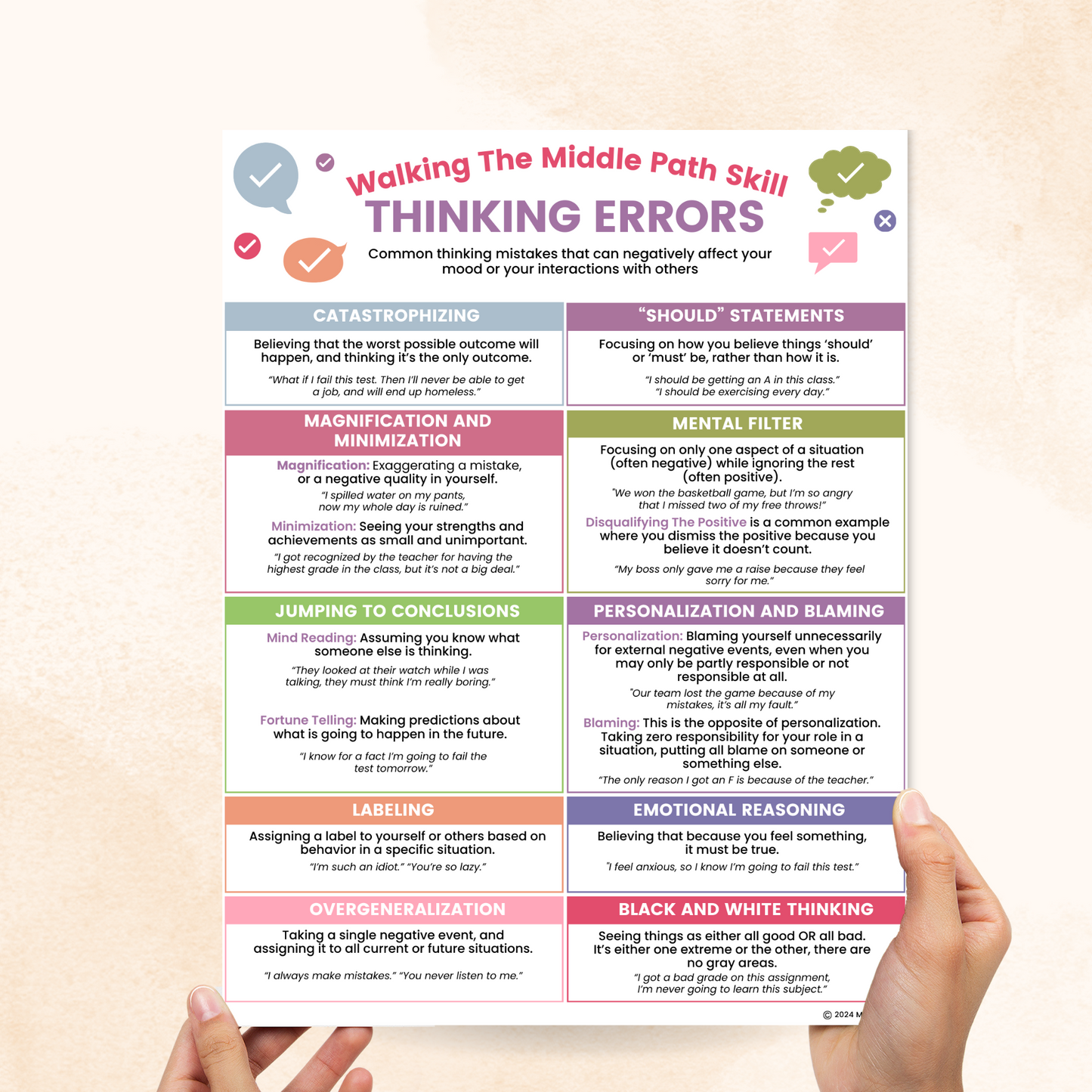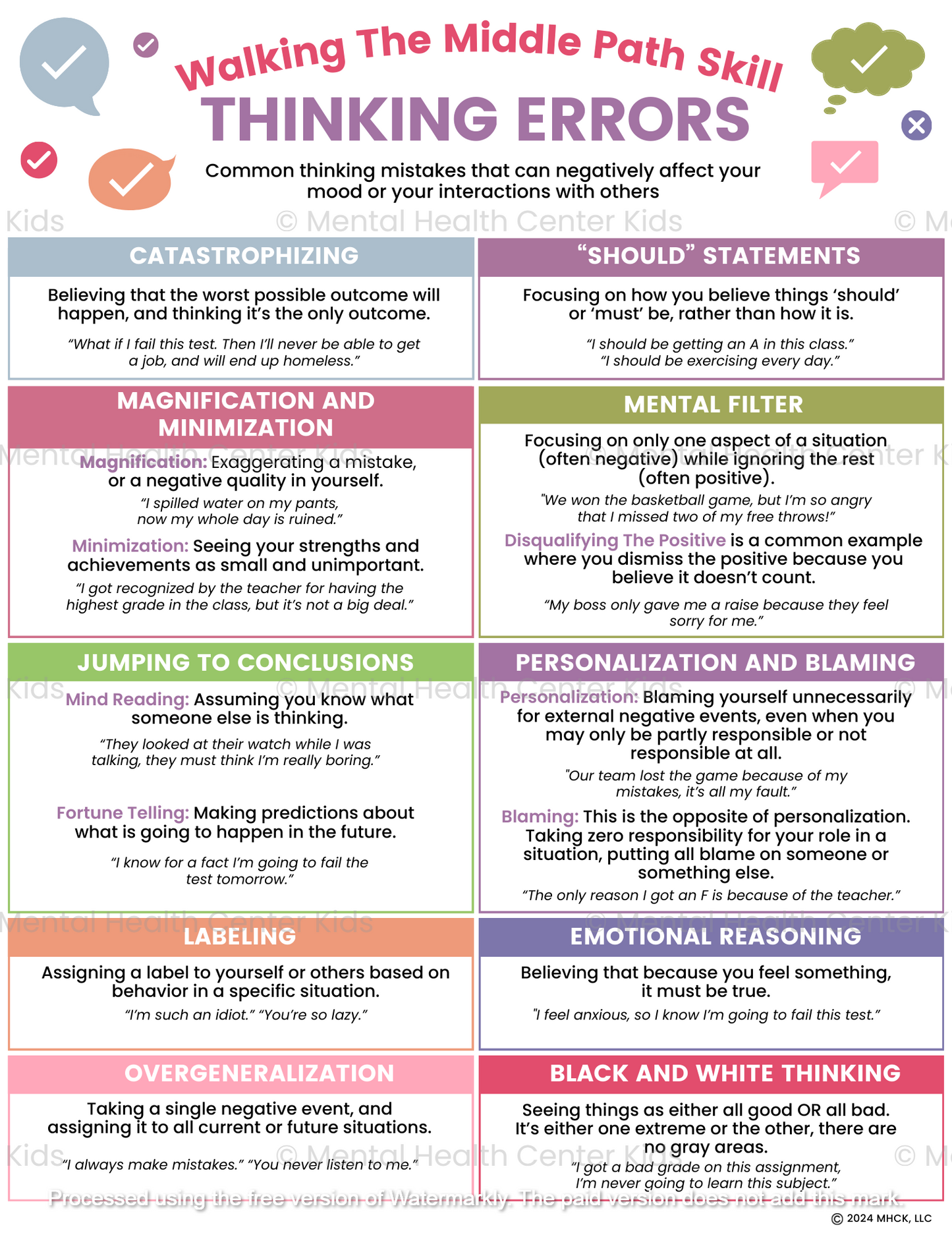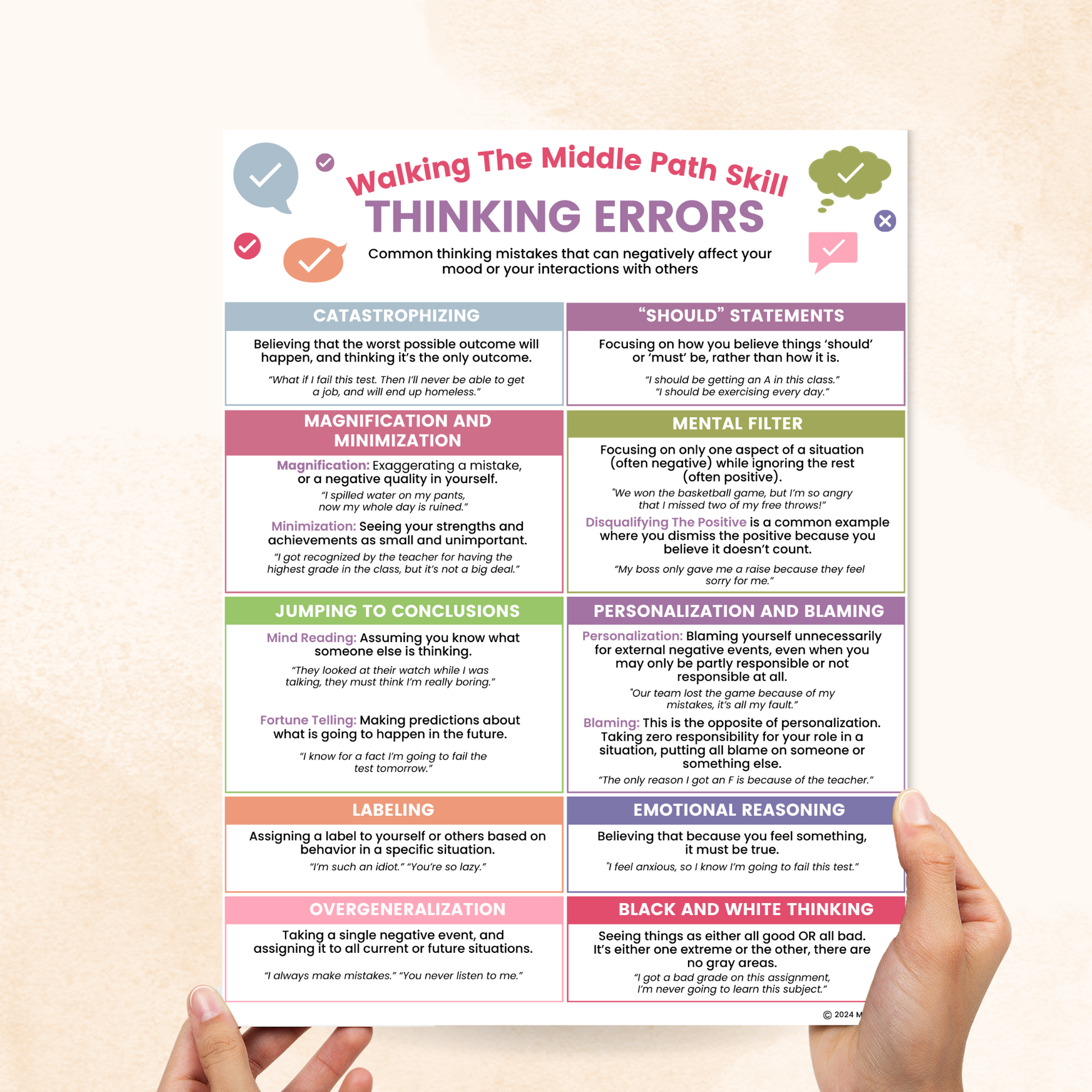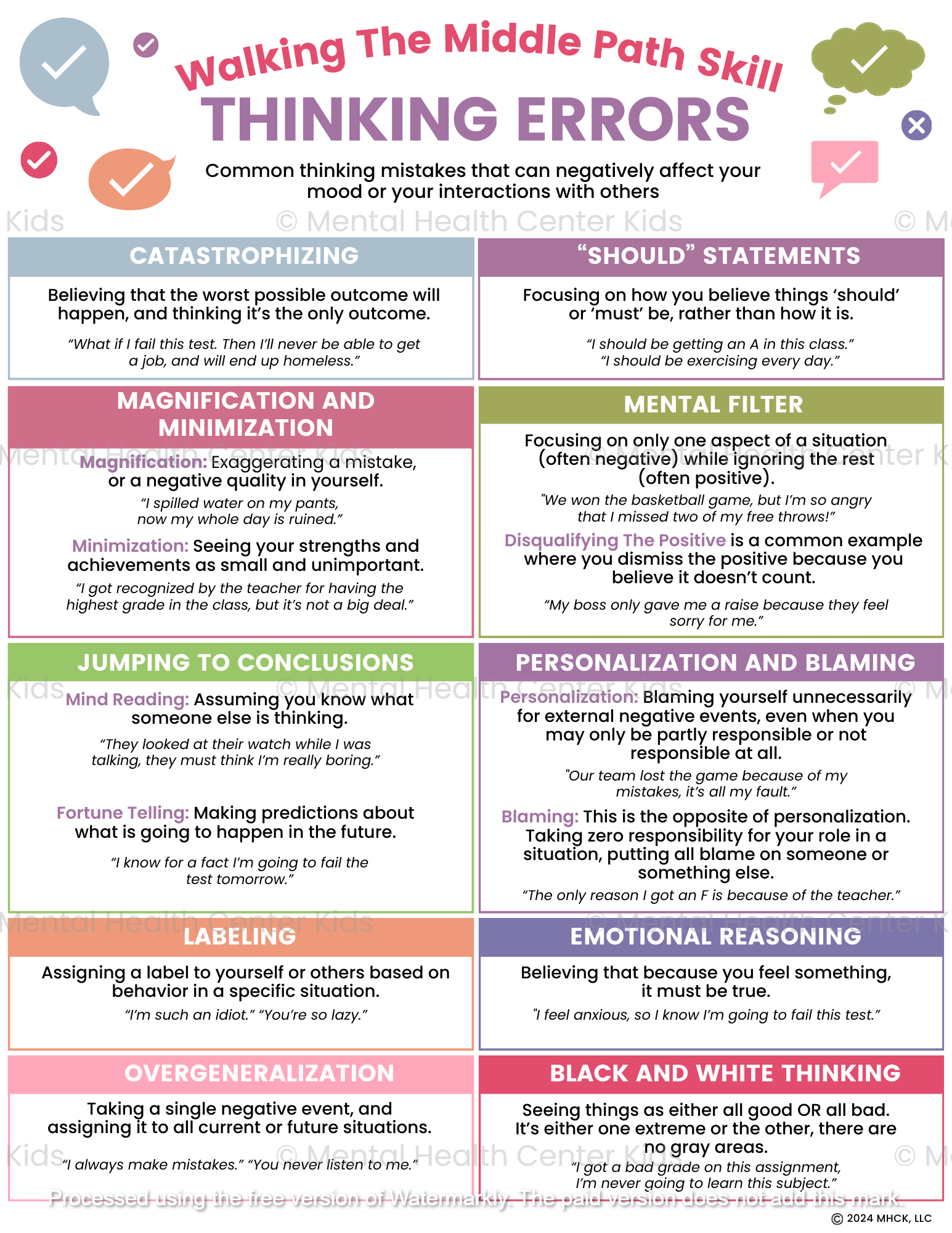DBT Thinking Errors (PDF)


Thinking errors, also known as cognitive distortions, are irrational beliefs that contribute to uncomfortable emotions and unwanted behavior. They are often discussed in both DBT and CBT. Research shows that certain types of distorted thinking can lead to increased anxiety and depressive symptoms. The sooner you become aware of these distortions and address them, the less likely they can influence your perceptions and decision-making processes.
The DBT Thinking Errors PDF handout outlines 10 patterns of distorted thinking, and each includes a specific example to illustrate how it manifests in a client’s everyday thoughts. For instance, the thinking error Blaming might include the thought, “The only reason I got an F is because of the teacher.”
For kids and teens undergoing therapy, this handout can help them question their assumptions, especially when these are causing conflicts in their relationships. After learning about thinking errors, they can keep a thought log where they can jot down their thoughts and check if these thoughts are based on facts or opinions.
This handout is specifically designed to be used with other DBT resources, but we also offer CBT versions with the title Cognitive Distortions or Thinking Errors. You can find additional unique product designs in our Automatic Negative Thoughts (ANTS), Thinking Traps, Negative Thinking Patterns, or Unhelpful Thinking Styles posters.
*This item is an instant digital download. A link to download your files will be emailed to you once payment is confirmed.
Want more resources like this? Check out our full catalog of DBT worksheets and handouts.
References:
- Marić, M., Heyne, D., Van Widenfelt, B. M., & Westenberg, P. M. (2010). Distorted Cognitive Processing in Youth: The Structure of Negative Cognitive Errors and Their Associations with Anxiety. Cognitive Therapy and Research, 35(1), 11–20. https://doi.org/10.1007/s10608-009-9285-3
- Pereira, A. I., Barros, L., & Mendonça, D. (2012). Cognitive errors and anxiety in school aged children. Psicologia: Reflexão E Crítica, 25(4), 817–823. https://doi.org/10.1590/s0102-79722012000400022
- Tairi, T. (2019). Associations between cognitive errors and mental health status in New Zealand adolescents. Behavioural and Cognitive Psychotherapy, 48(3), 280–290. https://doi.org/10.1017/s1352465819000626
- Instant digital download
- File: PDF
- Size: 8.5" x 11"



